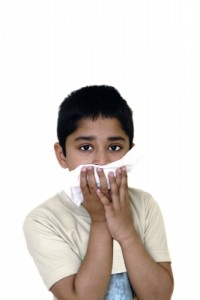Getting to Know Whooping Cough
Jul 26th, 2012
 Pertussis, or more commonly known as whooping cough, is recently reported to be plaguing a number of states including Washington, Wisconsin , New York, Minnesota and Arizona. Almost 18,000 cases had already been reported. This makes it the highest since 1959. Out of this number, nine had already died. Whooping cough not only affects children or pregnant women but adults as well.
Pertussis, or more commonly known as whooping cough, is recently reported to be plaguing a number of states including Washington, Wisconsin , New York, Minnesota and Arizona. Almost 18,000 cases had already been reported. This makes it the highest since 1959. Out of this number, nine had already died. Whooping cough not only affects children or pregnant women but adults as well.
Let’s get to know pertussis so we can better protect ourselves against it.
What is Whooping cough?
Whooping cough is a highly contagious respiratory disease. The infection is caused by the bacterium Bordetella pertussis which causes the infected person to cough severely. The name “whooping” came from the sound made when an infected person tries to breathe.
How do I protect myself and my family from pertussis?
- The best thing you can do is to be vaccinated.
Children can get immunized through a shot called DTaP which protects against diphtheria, tetanus, and pertussis. This shot needs to be given five times – at 2 months, 4 months, 6 months, between 15-18 months and the last dose when the child is between 4 to 6 years old.
Preteens can have their DTaP shots between age 11 or 12.
Adults who were not able to get vaccinated when they were preteens need only one shot.
Pregnant women who were not vaccinated before should be vaccinated between the late second trimester or third trimester of pregnancy. This not only protects the mother but the baby as well.
- Avoid people infected with this illness.
Initial symptoms include:
- congestion
- runny nose
- sneezing
- fever
- cough (that worsens after a week or two weeks)
How do you treat Whooping cough?
Babies below one-year-old who contracted the disease need to be brought to the hospital to be given adequate medical care because babies tend to temporarily stop breathing. This disease is also more serious in babies and young children than in adults.
Adults may take antibiotics to speed up recovery and reduce the risk of spreading the bacteria. For antibiotics to be effective, it must be taken early. If not, it’ll be useless.
There are also other measures you can take at home to heal or soothe this condition.
- Rehydrate. Drink a lot of fluid to replace lost liquid in your body. Do as much as you can to keep your body hydrated. Aside from water, fruits and soup can help.
- Get lots of rest.
- Stay away from irritants like fumes, smoke and dust
- A vaporizer can help loosen the phlegm in your lungs
Be considerate to others. Stay away from other people to avoid passing on the bacteria to them. If necessary or unavoidable, cover your mouth when you cough or use a mask.
Taking these precautions and staying informed is essential for protecting yourself and your family from pertussis. It’s also important to maintain health insurance coverage, ensuring access to vaccinations and medical care needed to prevent and treat diseases like whooping cough. For more information, consult your healthcare provider or contact your health insurance company to find a provider near you.
Related posts from our blog:
No related posts.
Tags: Whooping cough